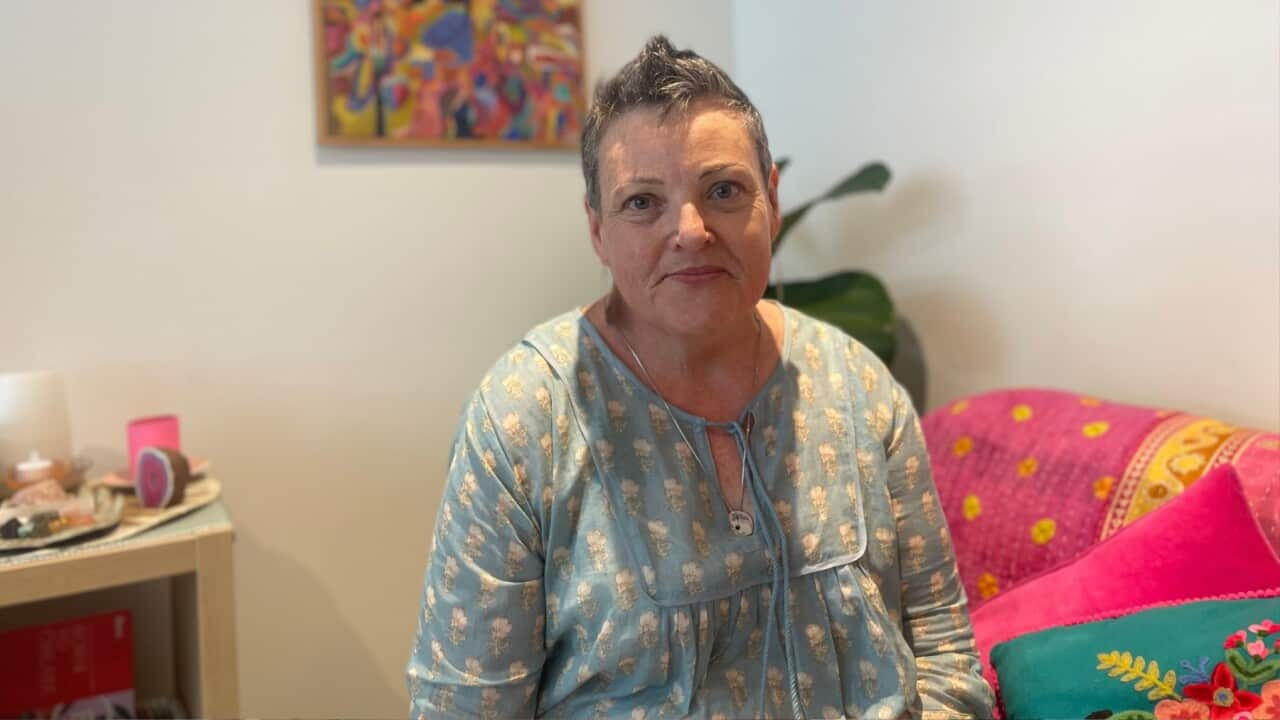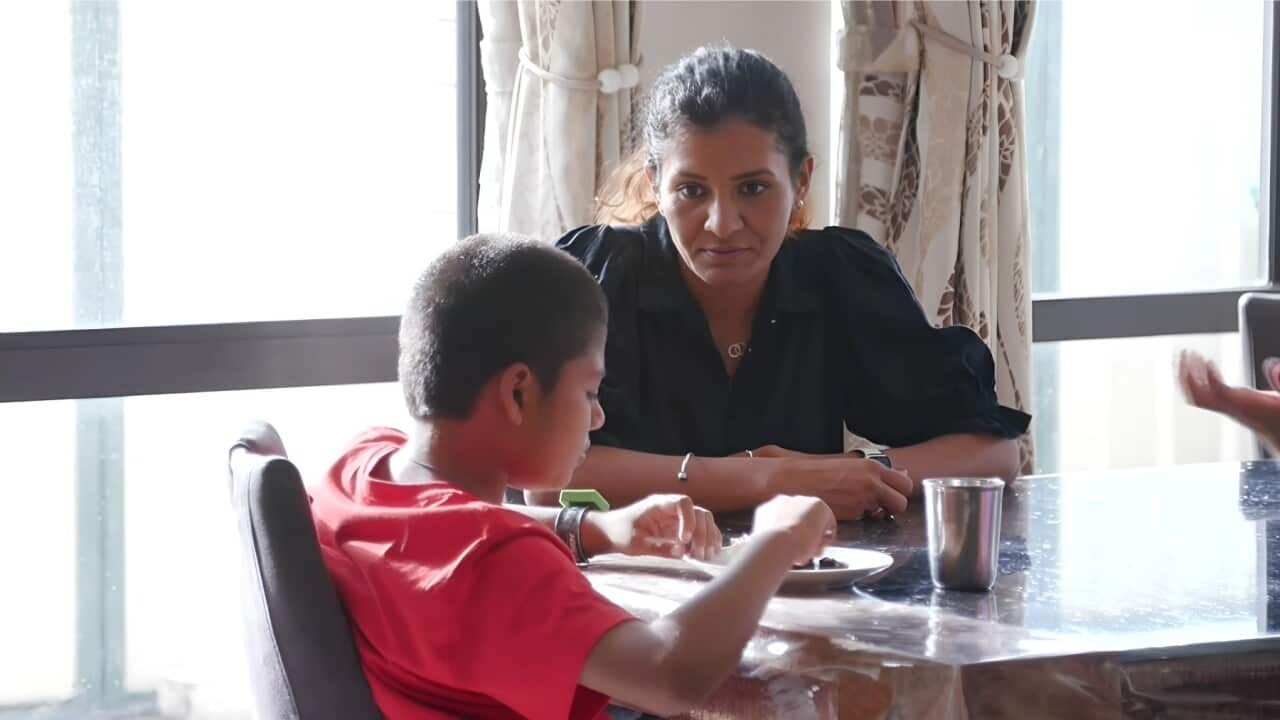TRANSCRIPT
A new Alzheimer's drug that aims to reduce cognitive decline has just been approved in the United Kingdom - and could soon be available in Australia.
Lecanemab is being evaluated by the medicines regulator in Australia, the TGA.
And if approved, the medicine could be available here later this year, but it will cost about $38,000 a year per person.
The drug has already been approved for use in the United States, Japan, China, South Korea and Israel.
An estimated 55 million people worldwide are affected by dementia, that includes half a million Australians.
Without effective medical treatment, the number of Australians living with dementia is expected to triple by 2050.
Dr Richard Oakley is the associate director of research at the Alzheimer's Society in the United Kingdom.
He says Lecanemab is the first step towards better treatment.
"This is not a wonder drug that stops or reverses or cures anyone, this slows the decline. What it is, it is the first time in the UK that we have ever seen a treatment that can slow down the progression of what is actually the UK's biggest killer. So this is definitely a defining moment. And we should all be excited about the potential because this is the first drug and it is based on Alzheimer's Society research, which is fantastic, but it will not be the last drug, this is the beginning of the journey and a really defining moment."
A global clinical trial of 1,795 participants showed Lecanemab slowed cognitive decline by about a quarter in patients in the early stages of Alzheimer’s, when taken over a period of 18 months.
David and his wife Cheryl Essam know the hardships caused by Alzheimer's only too well.
David has had Alzheimer's for eight years - and he has been involved with the clinical trial.
CHERYL ESSAM: "Even if it had given us just another six months of trying to live a normal life, and we do live as normal life as possible don't we?"
DAVID ESSAM: "Doing what the best you can do."
But, despite the excitement surrounding Lecanemab, many fear they won't be able to afford it.
The word 'dementia' describes a set of symptoms that over time can affect memory, problem-solving, language and behaviour.
Alzheimer's disease is a specific type of dementia with symptoms including: progressive memory loss and cognitive decline.
Lecanemab works in the early stages of the disease, and attacks the rapid build-up of a protein called 'beta amyloid' that is believed to be at the root of Alzheimer's disease.
Dr Bill Brooks, from Neuroscience Research Australia, has been studying Alzheimer’s disease for 36 years.
He says the $38,000-a-year per person cost of the drug is because of how it is administered.
"Firstly, it has to be given by intravenous infusion lasting an hour every fortnight. it's not like taking a pill every time you clean your teeth, nurse has to come to the home or the patient has to go to a hospital or somewhere where they can have a drip put in and an infusion set up."
Aside from the regular appointments required to administer Lecanemab, Dr Brooks says there are also substantial costs associated with detecting Alzheimer's early and monitoring for potential side effects.
"There's no point in taking it unless you've got amyloid in the brain. But to demonstrate amyloid in the brain, we need an expensive test called a PET scan, which is a couple of thousand dollars per person. Additionally, we need to check for side effects in the brain, so people have to have an MRI scan, which again is around about another $800 to $1,000-dollars periodically to check that they're not getting side effects of bleeding and swelling in the brain due to these drugs. So that's aside from the cost of making the drug itself and transporting it and making sure that it's at the right temperature and that sort of thing. That's mainly why it's so expensive."
The drug is also currently being considered for potential inclusion on the list of government-subsidised medicines, the Pharmaceutical Benefits Scheme or PBS.
In the UK, Lecanemab will not be available through the publicly funded healthcare system, the National Health Service [[NHS]] because of draft guidance that says the benefits of the drug "are too small to justify the costs".
Dr Brooks says it is hard to know right now whether the cost of the drug can be made more affordable.
"If it could prevent the cases of Alzheimer's disease, that would be a big saving. But at the state of our knowledge at the moment, we don't know how much and how long to give it for and how many people would be able to tolerate it."
So, while the availability of the treatment in Australia is yet to be confirmed, Dr Brooks says the drug is an exciting development and marks the beginning of a new phase in Alzheimer's research.
"It's very exciting because finally this is the culmination of a couple of decades of work. And finally there is a drug that removes amyloid from the brain. Looking at the scans, you can see that they're full of amyloid. And then after say a year of treatment, the amyloid is almost all gone. So if you could think of it like the way Churchill did in the middle of the second World War, that this is not the end. It's not, maybe not even the beginning of the end, but it's certainly the end of the beginning."
Cheryl Essam says the treatment will change lives.
"For the next generation it will make such a difference."
If this story has prompted any questions or concerns, please call the National Dementia Helpline on 1800 100 500 (24 hours, 7 days a week) or visit dementia.org.au













